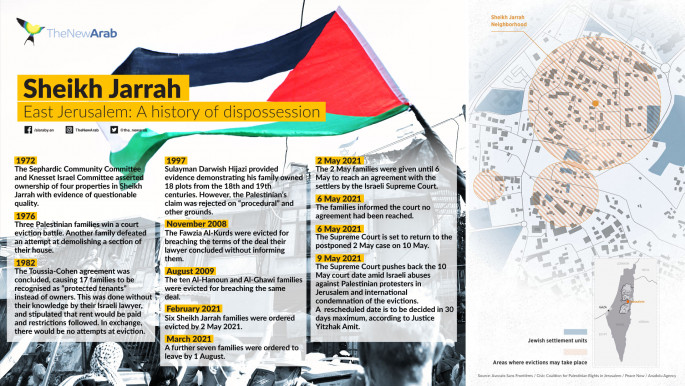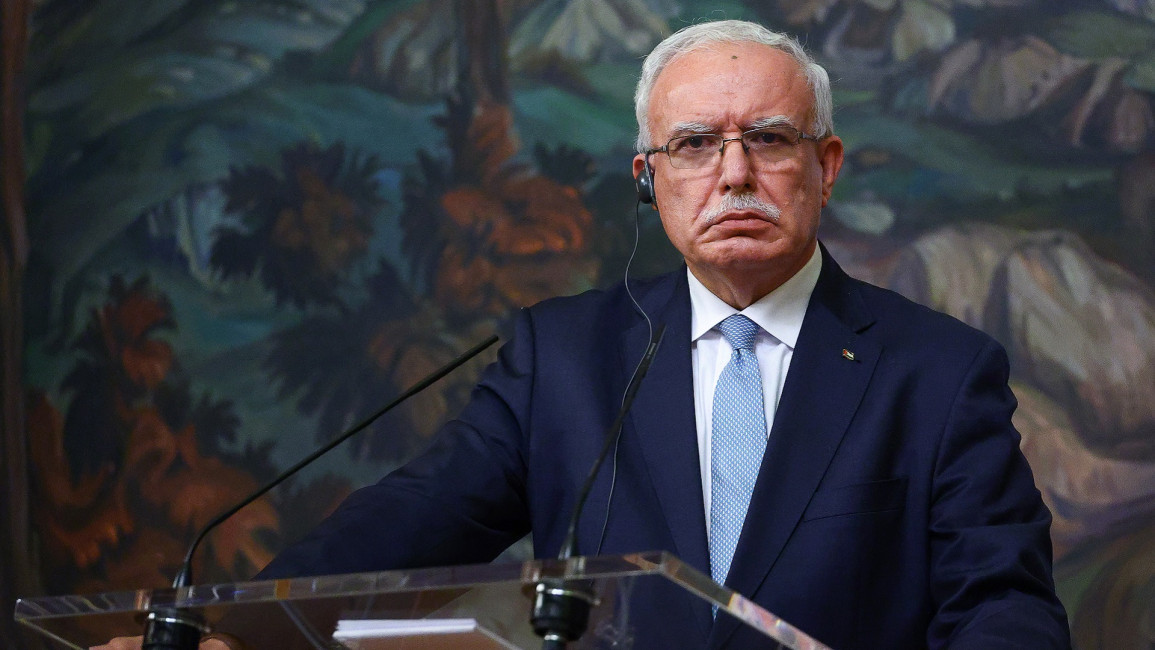Palestinian foreign minister criticises normalisation accords amid deadly Israeli assault on Gaza
Palestinian foreign minister Riyad al-Maliki on Sunday criticised countries that moved to normalise relations with Israel last year, as Muslim nations slammed Israel’s "barbaric" attacks against the Palestinians, which have so far killed at least 181 people.
"Normalisation and running towards this colonial Israeli system without achieving peace and ending the Israeli occupation of Arab and Palestinian lands represents support for the apartheid regime and participation in its crimes," Maliki told an emergency meeting of foreign ministers of the Organisation of Islamic Cooperation.
"This colonial occupation must be confronted, dismantled, ended, and banned. The recently accelerated normalisation will not have an impact on the sentiments of the Arab world or change their assessment."
Israel’s deadly attacks on the Gaza Strip, which were preceded by assaults in Jerusalem’s Al-Aqsa Mosque and Sheikh Jarrah neighbourhood, have embarrassed countries which moved to normalise relations with Israel - Sudan, Morocco, the United Arab Emirates and Bahrain.
The OIC's virtual meeting was hosted by Saudi Arabia, which has not formally normalised ties with Israel but is known to maintain clandestine relations.
In a joint statement, the OIC said it "condemns in the strongest terms the barbaric attacks launched by Israel... against the Palestinian people and their land and holy sites".
Read also: How are Saudi and Emirati media covering Israeli violence against Palestinians?
The pan-Islamic body demanded a complete cessation of hostilities, saying the violence was causing "severe suffering" to civilians and increased the "risks of instability" in the region.
Saudi Foreign Minister Prince Faisal bin Farhan also called on the international community to take "urgent action" to halt the Israeli military operation and to revive peace talks aimed at securing a two-state solution.
"Preserving Jerusalem is the responsibility of all of us," he said.
The latest bloodshed, just as Muslims were celebrating the end of the fasting month of Ramadan, has put Israel's new Arab partners on the back foot, prompting them to turn to critical rhetoric less than a year after they signed normalisation agreements.
The so-called Abraham Accords stood in stark contrast to the 2002 Arab Peace Initiative, which promised Israel peace only in return for withdrawal from the West Bank and Gaza and the setting up of a Palestinian state.
They were condemned as "treason" by Palestinian leaders who pointed out that they rewarded Israel while it continued its occupation of the West Bank and East Jerusalem and siege of Gaza.
The normalisation accords were struck at the urging of then US president Donald Trump, who hailed the "dawn of a new Middle East" as his son-in-law and adviser Jared Kushner dismissed the Israeli-Palestinian conflict as a mere "real estate dispute".
Reem Al Hashimy, the United Arab Emirates' minister of state for international cooperation, spoke at the meeting but did not address the criticism, only calling for a halt to the violence and not specifically blaming Israel for the troubles.



